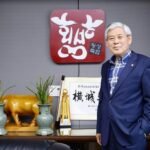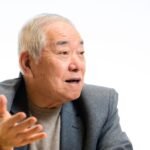Hyundai Glovis vessel at a port and cars to be loaded (Courtesy of Hyundai Glovis)
Hyundai Glovis Co. expects an improvement in earnings this year from last year after reporting better-than-expected sales and operating profit in the first quarter largely thanks to an increase in inland delivery of finished cars in overseas markets and high car shipping rates.
The logistics and shipping unit of South Korea’s Hyundai Motor Group announced in a regulatory filing on Thursday that its operating profit for the first quarter ended in March stood at 384.8 billion won ($279.5 million), down 5.4% from the same period of last year.
This beat the market consensus of 364.3 billion won in operating profit in a survey conducted by Seoul-based financial information service Yonhap Infomax under Yonhap News Agency.
Sales rose 4.5% over the same period to 6.6 trillion won while net profit added 7.9% to 306.2 billion won.
Despite unfavorable market conditions, such as the global economic slowdown and the Israel-Gaza war-triggered geopolitical risks causing delays and suspensions in Red Sea operations, Hyundai Glovis managed its business well.
Its shares ended up 1.1% at 180,000 won apiece on Thursday, outperforming Korea’s main Kospi index losing 1.8%.
The world’s third-largest car shipping company’s solid earnings were largely owed to a rise in inland deliveries of finished cars in overseas markets and higher vehicle shipping rates.
In October last year, the company hiked seaborne freight rates for global automakers. It didn’t disclose the exact size of the planned fare increases, citing confidentiality agreements with its clients.
It expects this year’s operating profit will grow to up to 1.7 trillion won from 1.5 trillion won a year ago on sales of about 27 trillion won versus 25.6 trillion won last year.
Hyundai Glovis plans to make aggressive investments to expand its presence in overseas markets, the company said.
As part of such efforts, it will invest $750 million to build six new liquefied natural gas (LNG) dual-fuel vessels, which can carry 10,800 vehicles, each, Hyundai Glovis announced in a separate filing on the same day.
It will receive the six ships by the end of 2028.
“We have decided to order more ships to ensure stable shipping and logistics services for our strategically important global clients in the mid-to-long term,” said the company.
In August last year, the company, which operates 72 pure car and truck carriers (PCTCs), announced a plan to borrow an additional 12 vehicle transport vessels by 2025 to ease vessel shortages.
LOGISTICS DIVISION OUTPERFORMS
In the first three months of this year, Hyundai Glovis’ logistics business reported 181.7 billion won in operating profit, adding 8.2% from the same period a year ago. Logistics sales also gained 6.1% to 2.3 trillion won.
(Courtesy of Hyundai Glovis)
Especially, its overseas inland transportation volume of finished vehicles increased, more than offsetting a decrease in finished car production and exports from Korea.
Hyundai Glovis expected finished car sales in major overseas markets to stay robust but its business will largely hinge on the lingering uncertainty from geopolitical risks in the Middle East.
It shipping business raked in 82.5 billion won in operating profit in the first quarter on sales of 1.1 trillion won.
Sales gained 14.1% on-year but operating profit dropped 21.9% due to transit delays in Red Sea operations, low vessel space utilization rate and port congestion issues, the company said.
Distribution division reported 120.6 billion won in operating profit, down 9.4% from the same period of last year, on sales of 3.2 trillion won, inching up 0.4%. Its profit fell due to a fall in domestic and overseas used car sales.
To improve its profitability, Hyundai Glovis will actively invest in logistics hubs, terminals, ports and fulfillment centers while seeking to attract more strategically important shippers, the company’s President and Chief Executive Officer Lee Kyoo-bok said during an earnings call on Thursday.
The company will also seek to adjust freight rates in new contracts with its affiliated companies such as Hyundai Motor Co. and Kia Corp. to reflect recent rate hikes when their three-year contracts end later this year. It has not yet decided how much it will increase.
By Jae-Fu Kim
hu@hankyung.com
Sookyung Seo edited this article.















